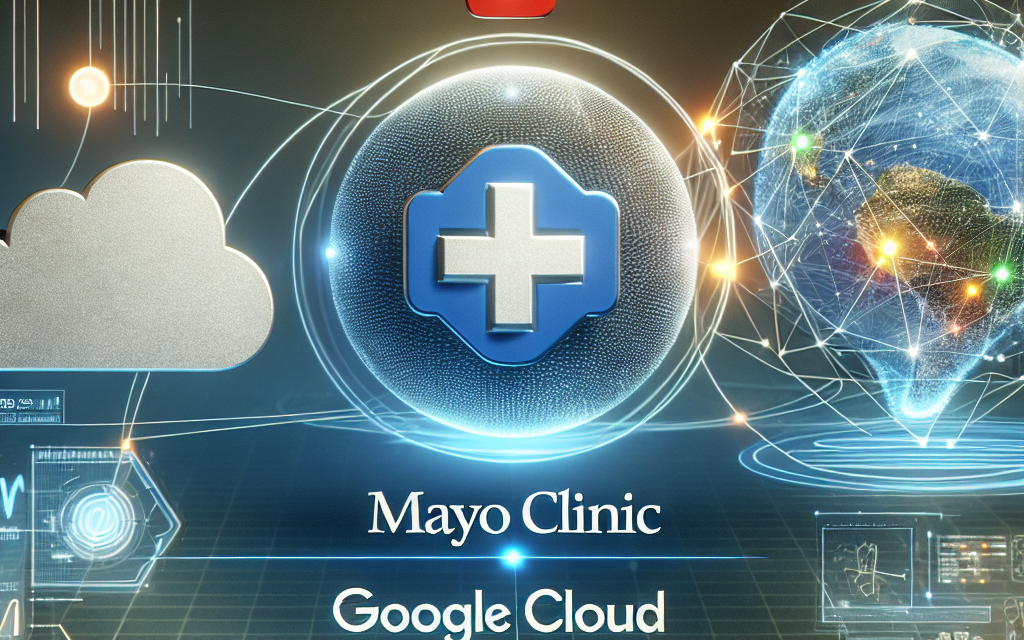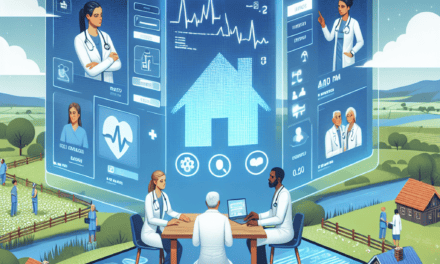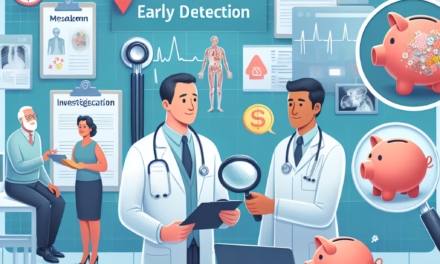AI Highlights: Updates from Mayo Clinic, Google Cloud, and Beyond
Artificial Intelligence (AI) is revolutionizing various sectors, particularly healthcare and technology. Institutions like Mayo Clinic and tech giants like Google Cloud are at the forefront of this transformation, leveraging AI to enhance patient care, streamline operations, and drive innovation. This article delves into the latest updates and advancements in AI from these organizations and beyond, exploring their implications for the future of healthcare and technology.
1. Mayo Clinic: Pioneering AI in Healthcare
Mayo Clinic has long been recognized as a leader in healthcare innovation. The institution is increasingly integrating AI into its operations, aiming to improve patient outcomes and operational efficiency. Here, we explore several key initiatives and advancements in AI at Mayo Clinic.
1.1 AI-Powered Diagnostics
One of the most significant applications of AI at Mayo Clinic is in diagnostics. The clinic has developed AI algorithms that assist in interpreting medical images, such as X-rays, MRIs, and CT scans. These algorithms can analyze images with remarkable accuracy, often identifying conditions that may be missed by human eyes.
- Case Study: Radiology AI – Mayo Clinic’s radiology department has implemented AI tools that can detect early signs of diseases like lung cancer. In a study, AI algorithms demonstrated a sensitivity of over 90% in identifying malignant nodules, significantly outperforming traditional methods.
- Impact on Workflow – By automating the initial analysis of medical images, radiologists can focus on more complex cases, thereby improving overall workflow and reducing the time to diagnosis.
1.2 Personalized Treatment Plans
Mayo Clinic is also utilizing AI to create personalized treatment plans for patients. By analyzing vast amounts of patient data, including genetic information, medical history, and treatment outcomes, AI can help clinicians tailor therapies to individual needs.
- Genomic Data Analysis – The integration of AI with genomic data allows for more precise cancer treatments. For instance, AI algorithms can identify specific mutations in a patient’s tumor, guiding oncologists in selecting the most effective targeted therapies.
- Predictive Analytics – AI tools can predict how patients will respond to certain treatments based on historical data, enabling healthcare providers to make informed decisions that enhance patient care.
1.3 Enhancing Patient Engagement
AI is also playing a crucial role in improving patient engagement at Mayo Clinic. Through chatbots and virtual health assistants, patients can access information and support 24/7, leading to better health outcomes.
- Chatbot Implementation – Mayo Clinic has deployed AI-driven chatbots that can answer common patient queries, schedule appointments, and provide medication reminders, thus enhancing the patient experience.
- Telehealth Services – The integration of AI in telehealth services allows for more efficient consultations, where AI can assist in triaging patients and providing preliminary assessments before a physician’s review.
1.4 Research and Development Initiatives
Mayo Clinic is committed to advancing AI research in healthcare. The institution collaborates with various tech companies and academic institutions to explore new AI applications.
- Partnerships with Tech Companies – Collaborations with companies like Google and IBM have led to the development of AI tools that can analyze clinical data and improve decision-making processes.
- Clinical Trials – Mayo Clinic is conducting clinical trials to evaluate the effectiveness of AI in various medical fields, including cardiology and neurology, aiming to validate AI’s role in enhancing patient care.
1.5 Ethical Considerations in AI Implementation
As Mayo Clinic embraces AI, it also addresses the ethical implications of its use. Ensuring patient privacy and data security is paramount in the deployment of AI technologies.
- Data Privacy Measures – Mayo Clinic adheres to strict data privacy regulations, ensuring that patient information is protected while utilizing AI for analysis.
- Bias Mitigation – The institution is actively working to identify and mitigate biases in AI algorithms to ensure equitable healthcare delivery across diverse patient populations.
2. Google Cloud: Transforming Healthcare with AI
Google Cloud is leveraging its technological prowess to transform healthcare through AI. The company is developing tools and platforms that enable healthcare providers to harness the power of AI for better patient care and operational efficiency.
2.1 AI-Driven Data Analytics
Google Cloud’s AI capabilities are being utilized to analyze vast amounts of healthcare data, providing insights that can lead to improved patient outcomes.
- BigQuery for Healthcare – Google Cloud’s BigQuery platform allows healthcare organizations to analyze large datasets quickly. This capability is crucial for identifying trends and patterns in patient data that can inform clinical decisions.
- Real-Time Analytics – The ability to perform real-time analytics enables healthcare providers to respond swiftly to emerging health issues, such as outbreaks of infectious diseases.
2.2 Enhancing Clinical Workflows
Google Cloud is also focused on improving clinical workflows through AI. By automating routine tasks, healthcare providers can allocate more time to patient care.
- AI-Powered Documentation – Google Cloud’s AI tools can assist in automating clinical documentation, reducing the administrative burden on healthcare professionals.
- Streamlined Communication – AI-driven communication tools facilitate better collaboration among healthcare teams, ensuring that critical information is shared promptly.
2.3 Telehealth Innovations
The COVID-19 pandemic accelerated the adoption of telehealth, and Google Cloud has been at the forefront of this shift, providing tools that enhance virtual care delivery.
- Virtual Care Platforms – Google Cloud’s telehealth solutions enable healthcare providers to conduct virtual consultations seamlessly, integrating AI to assist in patient triage and follow-up care.
- Patient Monitoring Tools – AI-powered remote monitoring tools allow healthcare providers to track patient health metrics in real-time, improving chronic disease management.
2.4 AI in Medical Research
Google Cloud is also making strides in medical research by providing researchers with AI tools that can accelerate the discovery of new treatments and therapies.
- Collaboration with Research Institutions – Google Cloud collaborates with various research institutions to leverage AI in analyzing clinical trial data, identifying potential drug candidates more efficiently.
- Machine Learning for Drug Discovery – The application of machine learning algorithms in drug discovery has the potential to significantly reduce the time and cost associated with bringing new drugs to market.
2.5 Addressing Ethical Challenges in AI
As Google Cloud expands its AI capabilities in healthcare, it is also addressing the ethical challenges associated with AI deployment.
- Transparency in AI Algorithms – Google Cloud emphasizes the importance of transparency in AI algorithms to build trust among healthcare providers and patients.
- Data Security and Privacy – The company is committed to ensuring that patient data is secure and compliant with regulations, such as HIPAA, while utilizing AI for analysis.
3. Beyond Mayo Clinic and Google Cloud: Other Notable AI Innovations in Healthcare
While Mayo Clinic and Google Cloud are leading the charge in AI healthcare innovations, many other organizations are making significant contributions. This section highlights some notable advancements from various players in the healthcare sector.
3.1 IBM Watson Health
IBM Watson Health has been a pioneer in applying AI to healthcare, focusing on data analysis and personalized medicine.
- Oncology Solutions – Watson for Oncology analyzes patient data and medical literature to recommend treatment options for cancer patients, helping oncologists make informed decisions.
- Clinical Trial Matching – Watson’s AI capabilities can match patients with suitable clinical trials based on their medical history and current health status, accelerating the research process.
3.2 Philips Healthcare
Philips Healthcare is leveraging AI to enhance imaging and diagnostic capabilities, improving patient outcomes.
- AI in Imaging – Philips has developed AI algorithms that assist radiologists in detecting abnormalities in medical images, reducing the time required for analysis.
- Patient Monitoring Systems – Philips’ AI-powered monitoring systems provide real-time insights into patient health, enabling timely interventions.
3.3 Siemens Healthineers
Siemens Healthineers is integrating AI into its imaging and laboratory diagnostics solutions, enhancing accuracy and efficiency.
- AI-Rad Companion – This AI tool assists radiologists by providing automated analysis of medical images, improving diagnostic accuracy and workflow efficiency.
- Laboratory Diagnostics – Siemens is using AI to streamline laboratory processes, reducing turnaround times for test results and improving patient care.
3.4 Cerner Corporation
Cerner Corporation is a leader in health information technology, utilizing AI to improve electronic health records (EHR) and patient management.
- AI-Enhanced EHRs – Cerner’s AI tools help clinicians by providing clinical decision support, alerting them to potential issues based on patient data.
- Population Health Management – AI algorithms analyze population health data to identify trends and inform public health initiatives.
3.5 Startups Driving Innovation
Numerous startups are emerging in the healthcare AI space, bringing fresh ideas and solutions to the market.
- Tempus – Tempus uses AI to analyze clinical and molecular data to help oncologists make data-driven treatment decisions.
- Zebra Medical Vision – This startup focuses on developing AI algorithms for medical imaging, providing radiologists with tools to enhance diagnostic accuracy.
4. The Future of AI in Healthcare
The future of AI in healthcare is promising, with ongoing advancements poised to transform patient care and operational efficiency. This section explores potential trends and developments in the coming years.
4.1 Integration of AI and Telemedicine
The integration of AI with telemedicine is expected to enhance virtual care delivery significantly. As telehealth becomes more mainstream, AI will play a crucial role in improving patient triage and follow-up care.
- AI-Driven Triage Systems – Future telehealth platforms may incorporate AI-driven triage systems that assess patient symptoms and direct them to the appropriate level of care.
- Enhanced Remote Monitoring – AI will enable more sophisticated remote monitoring tools, allowing healthcare providers to track patient health metrics in real-time and intervene when necessary.
4.2 Advancements in Predictive Analytics
Predictive analytics powered by AI will continue to evolve, enabling healthcare providers to anticipate patient needs and improve outcomes.
- Risk Stratification – AI algorithms will help identify high-risk patients, allowing for proactive interventions that can prevent complications and hospitalizations.
- Population Health Insights – Predictive analytics will provide valuable insights into population health trends, informing public health initiatives and resource allocation.
4.3 AI in Drug Development
The drug development process is lengthy and costly, but AI has the potential to streamline this process significantly.
- Accelerated Drug Discovery – AI algorithms can analyze vast datasets to identify potential drug candidates more quickly, reducing the time required for research and development.
- Clinical Trial Optimization – AI can optimize clinical trial designs by identifying suitable patient populations and predicting trial outcomes, enhancing the efficiency of the drug approval process.
4.4 Ethical AI in Healthcare
As AI becomes more integrated into healthcare, addressing ethical considerations will be paramount.
- Bias Mitigation Strategies – Ongoing efforts will be needed to identify and mitigate biases in AI algorithms to ensure equitable healthcare delivery across diverse populations.
- Patient Consent and Transparency – Ensuring that patients are informed about how their data is used in AI applications will be crucial for building trust in these technologies.
4.5 The Role of Interdisciplinary Collaboration
The future of AI in healthcare will rely heavily on interdisciplinary collaboration among technologists, healthcare providers, and policymakers.
- Collaborative Research Initiatives – Partnerships between tech companies and healthcare institutions will drive innovation and ensure that AI solutions are tailored to meet the needs of patients and providers.
- Policy Development – Policymakers will play a critical role in establishing regulations that govern the use of AI in healthcare, ensuring patient safety and data privacy.
5. Conclusion: The Transformative Power of AI in Healthcare
The integration of AI into healthcare is transforming the landscape of patient care and operational efficiency. Institutions like Mayo Clinic and tech giants like Google Cloud are leading the way, developing innovative solutions that enhance diagnostics, personalize treatment plans, and improve patient engagement. Beyond these leaders, numerous organizations and startups are contributing to the AI revolution in healthcare, driving advancements that promise to improve outcomes for patients worldwide.
As we look to the future, the potential of AI in healthcare is immense. From predictive analytics to drug development, AI will continue to shape the way healthcare is delivered. However, it is essential to address the ethical challenges associated with AI deployment, ensuring that these technologies are used responsibly and equitably. Through interdisciplinary collaboration and a commitment to innovation, the healthcare sector can harness the transformative power of AI to create a healthier future for all.





